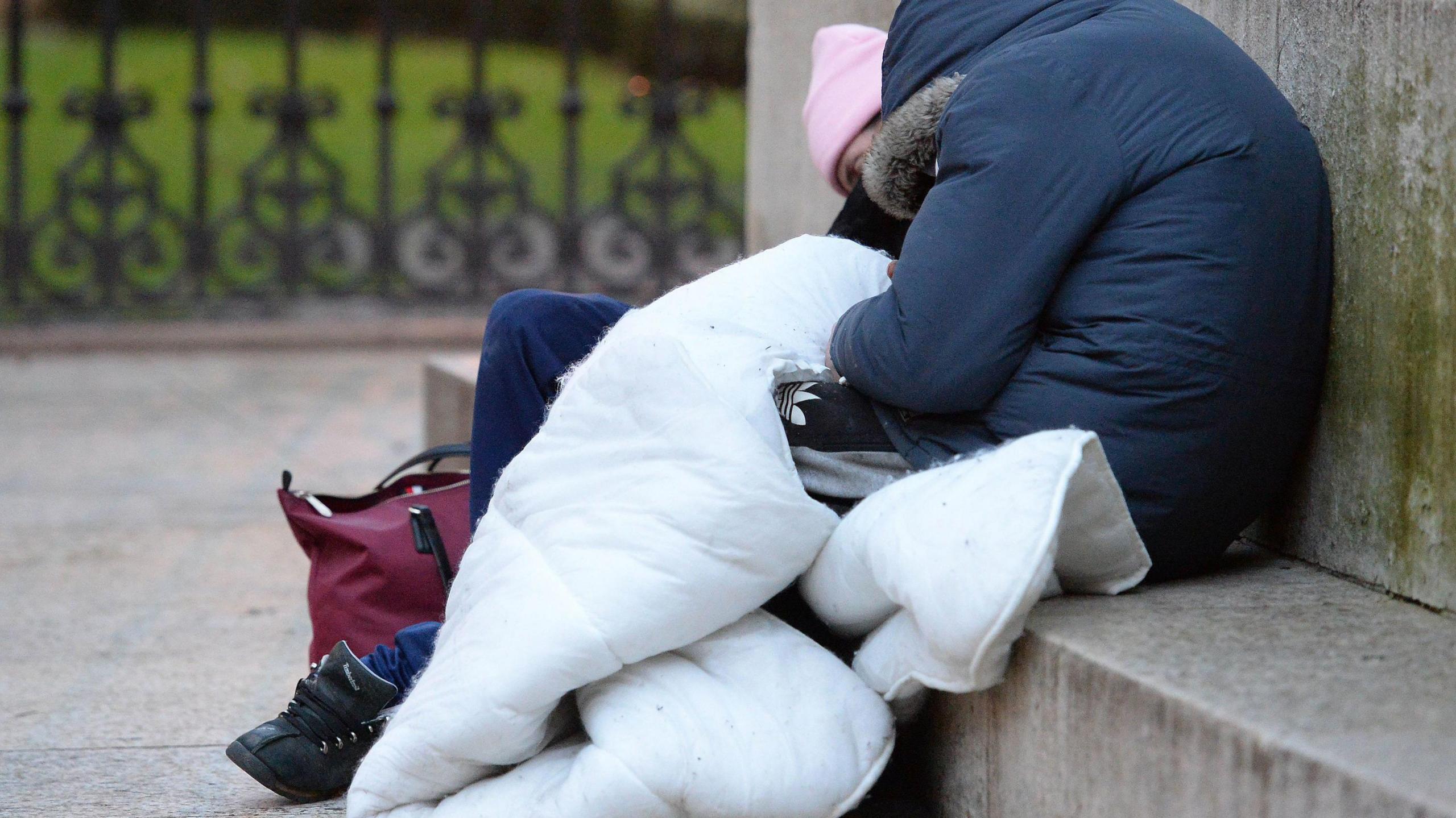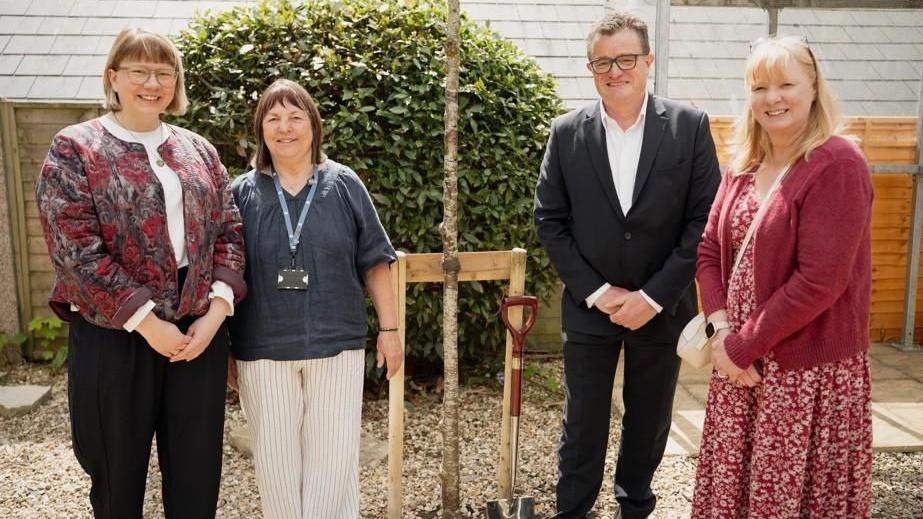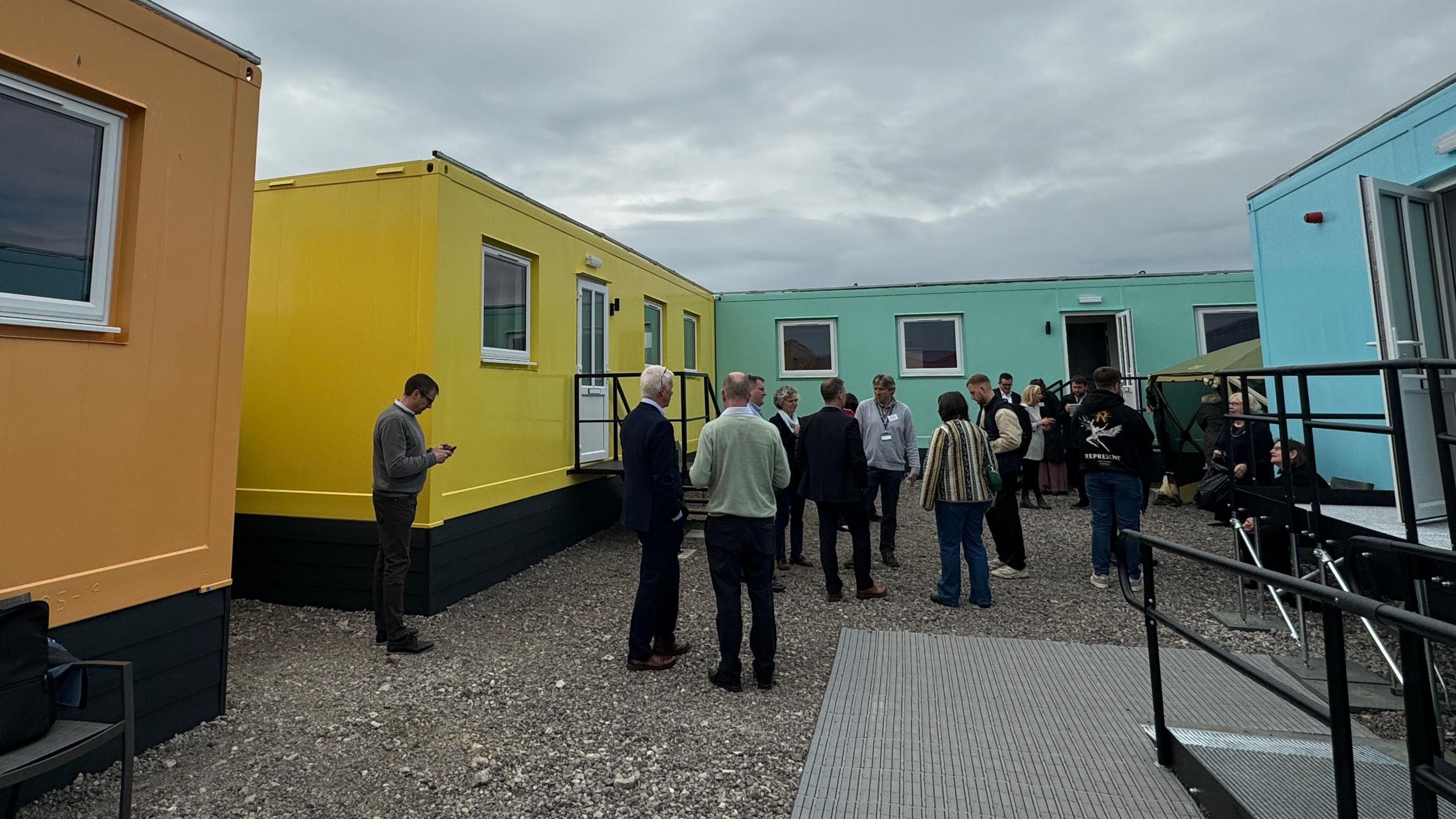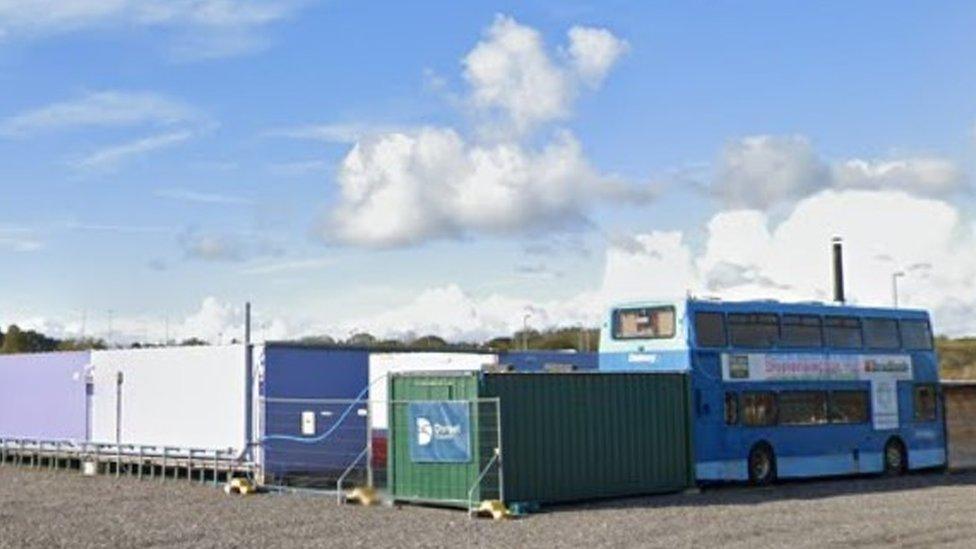Early intervention schemes prevent homelessness

Dorset Council said it was working to remedy housing problems before they reached crisis point
- Published
A council has said it has "almost eradicated" the need for bed and breakfast accommodation to house homeless families
Dorset Council said its success was due to early intervention schemes and up front investment in its housing service.
As a result, it said outcomes for people at risk of homelessness in Dorset had been improved and the need for "crisis point" intervention reduced.
However the number of rough sleepers in the county remained the same, at 15, on the autumn counts in 2023 and 2024.
The council said it was now able to help four in five people who requested help for homelessness concerns.
One of the prevention initiatives - Key4Me - offers financial incentives and support to landlords to house tenants rather than use letting agents.
The scheme has so far helped more than 100 households who were homeless or at risk of becoming homeless, according to the council.
Housing councillor Gill Taylor said: "We are turning the market on its head and proving that there are successful alternatives to expensive agencies or sourcing your own tenants."
The council has also been working in partnership with Shelter, Julian House, the Lantern Trust and Bus Shelter Dorset.
Two accommodation schemes, funded by the Single Homelessness Accommodation Programme, have also provided 11 units of accommodation for rough sleepers.
Ms Taylor said: "But we know we must do more, and we are also working on new ways to supply homes for people who need general and specialist housing."
Get in touch
Do you have a story BBC Dorset should cover?
You can follow BBC Dorset on Facebook, external, X (Twitter), external, or Instagram, external.
Related topics
- Published9 May

- Published27 March

- Published16 February

- Published11 December 2023
